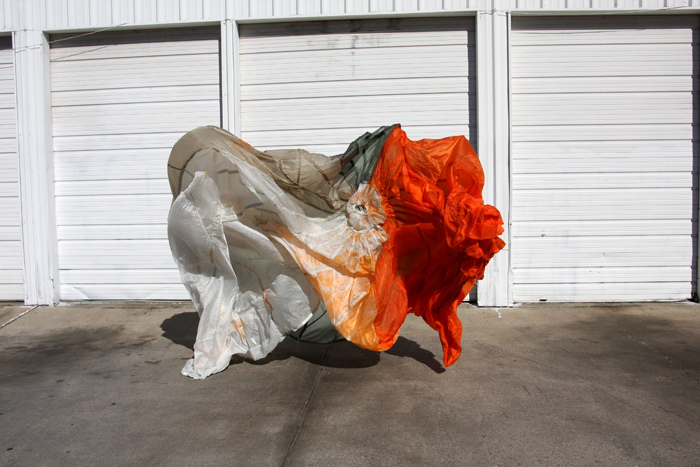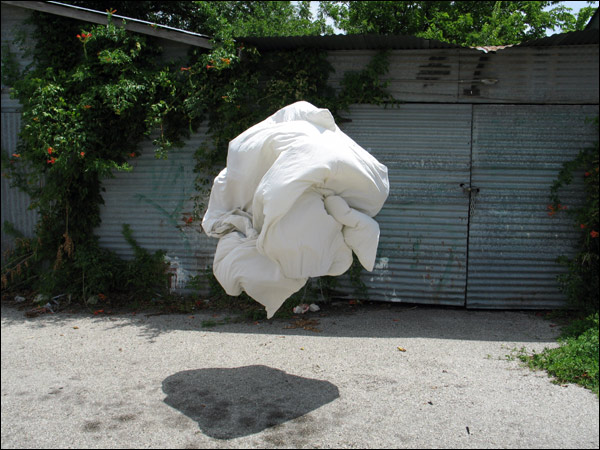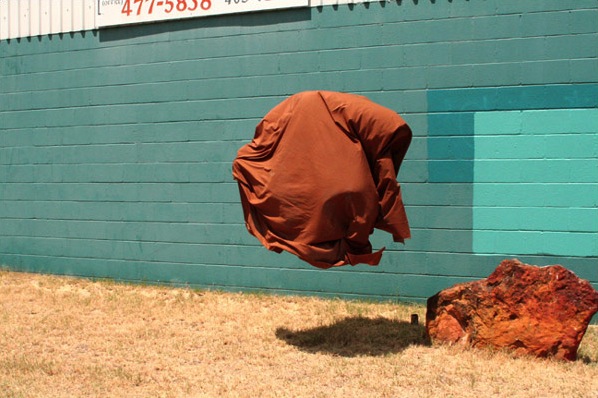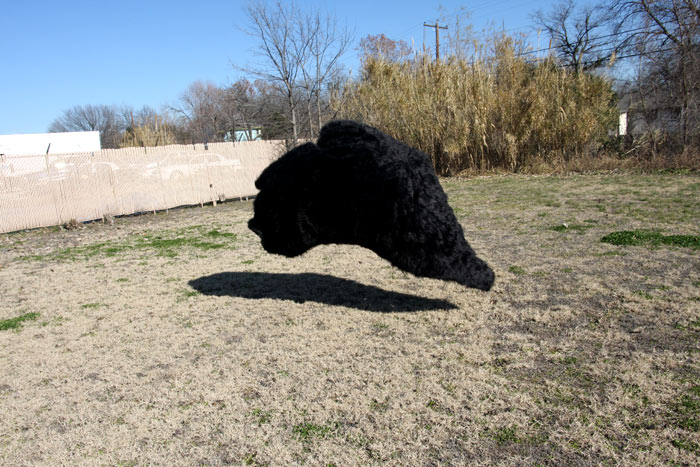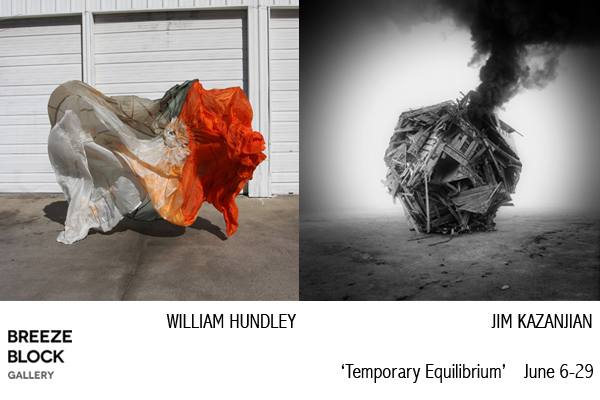It takes a couple of looks to comprehend William Hundley’s photography. He has been shooting his Entoptic Phenomena series of work since 2006 and wowing viewers with the floating fabric objects presented within his urban landscapes. Hundley’s work is composed completely within the camera – he uses zero post production or photoshop trickery within his images. We’ve followed his work for a number of years and always wondered how he captures his unique images, so we asked him a few questions about his process.
He has a two-person exhibition along with photography ‘Hyper-Collagist’ Jim Kazanjian (interviewed), featuring his Entoptic Phenomena series of work entitled Temporary Equilibrium, opening on June 6th at Portland’s Breeze Block Gallery.
AM: Whenever I’ve shown your work to people they take a little while to figure out what’s going on – with particular reference to the Entopic Phenomena series. Most at first think it’s Photoshop trickery or something going on, and you get the ‘ah that’s pretty cool’ reaction. After I’ve explained that there is a person inside the form outlined by the fabric and that they are looking at an ‘in camera’ photograph the penny drops and they change their reaction to ‘That’s fucking cool!’. Do you find that you have to explain this series a lot, and if so how do you tell the story?
WH: Yes, as we are out shooting I need to quickly explain what I am doing so people don’t freak out and/or call the cops. I make it sound like no big deal, just a silly art project. Lots of security guards, lots of concerned citizens, lots to talk my way out of.
As far as explaining the final artwork to somebody. Yes, I will briefly explain if asked directly, but I do everything I can to allow the viewer to determine their own conclusions about my images. It’s almost like a visual riddle with a hidden reward. I like how some people assume it is Photoshopped and never think twice. That is double points for me.
AM: Do you plan a connection between the fabric you use and the setting? I’m intrigued about the backgrounds you use. Do you purposefully go on location scouting trips or do you find yourself continually making mental notes of where your travels take you?
WH: Selecting the fabric colors to match the backgrounds is like painting for me. I typically make sloppy and thus cryptic notes of cool locations as I drive around town. It’s dangerous really. I then revisit the locations with a bunch of random fabrics and a friend and select something on the spot. I go with my gut on those decisions and will change the fabrics if needed.
AM: Are the majority of locations shot in Austin?
WH: Yes, most of the locations are in and around Austin. The idea travels well, so some of the work is shot while on adventures outside of Texas. I just need a camera and the sheet from whatever bed I’m sleeping in. Ha!
AM: And who exactly is within the forms? Have you ever taken any selfies in this series?
WH: Oh yeah. The original photographs of the series were taken of me by my girlfriend at the time. Now I have a couple of skilled acrobatic friends to assist. It is not as easy as you think to maneuver the fabric and your body accordingly. It can also be embarrassing for some people because most the locations I choose are in public places and can be seen from busy roads. Lots of people honk at us and look really confused about what is going on.
AM: As the shots contain people, would you describe the Entopic Phenomena photographs as portraits or landscapes?
WH: I don’t really describe them in either sense. I like other people to tell me what they think they are.
AM: Your sense of humor is prevalent in your photography and throughout your entire body of work. Do you think it’s important to inject an element of play into the art world? Who’s the ‘funnest’ artist out there for you?
WH: Yes, I like funny. Art that is too serious loses the purpose for me. That doesn’t mean that everything I do is intended to be humorous, or that I don’t like some serious art. I like to have fun with my work. I also really appreciate the fact that some of the images are out there right now making people smile and wonder. My opinions change, but I would have to say that Erwin Wurm is quite the prolific comedian.
AM: You’re showing your work as a 2-person exhibition with Jim Kazanjian this June at Breeze Block Gallery in Portland. Jim uses contemporary landscape photography in a unique way, although doesn’t classify himself as a photographer. Can you tell us a little about the exhibition and the synergies you’ve found within your work?
WH: My initial reaction was that it was a great matchup: the highly Photoshopped surreal photographic work of Jim’s next to my in-camera unaltered photographic works also of surreal appearance. My next thought was how vibrant the colors of my work will be next to the sharp black and white of Kazanjian’s work.
Discuss this artist here.
Discuss this show here.
